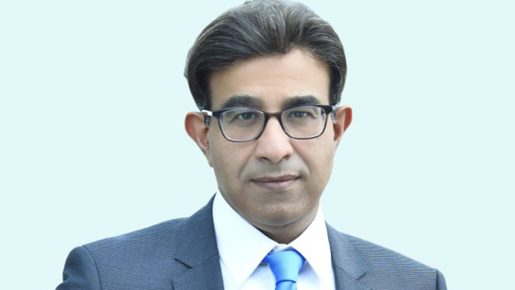Arshad Rab, the distinguished Chairman of the International Council of Sustainability Standards for Value-Driven Financial Institutions, recently addressed the imperative for Nigeria to establish robust financial institutions as a cornerstone for fostering a resilient economy. These insightful remarks were delivered during the Nigeria Sustainability Summit 2023, a pivotal event organized by Access Holdings Plc in collaboration with esteemed partners, namely the European Sustainable Development Organisation (EOSD) and Financial Nigeria.
Under the overarching theme of “Crisis Resilience and the New Nigerian Economy,” Rab underscored the pivotal role that strong financial institutions play in the economic fabric of a nation. He articulated that Nigeria stands at a critical juncture where the establishment of formidable financial institutions is not just a means to economic stability but a catalyst for propelling the nation into the realm of 21st-century high-speed innovation and progress.
The summit, serving as a platform for dialogue and collaboration, saw Rab urging financial institutions with sustainability certifications to take a pioneering role in steering Nigeria away from conventional economic paradigms. He envisioned a transformative journey toward a future characterized by high income, advanced technology adoption, social inclusivity, and a commitment to environmental and climate-friendly practices.
In addition to Rab’s visionary insights, the summit featured a compelling welcome address by Omobolanle Victor-Laniyan, the Head of Group Sustainability at Access Holdings. Victor-Laniyan passionately emphasized the pressing need for sustainable practices in Nigeria and articulated a collective aspiration to guide the nation toward a future marked by economic resilience, environmental stewardship, and social responsibility.
Reflecting on recent challenges faced by the nation, Victor-Laniyan acknowledged the urgency for a sustainable approach to development. She passionately asserted the pivotal role of the private sector, armed with dynamism, influence, and commitment, in driving positive change. The summit, she noted, was a manifestation of this spirit, aiming to harness the expertise, resources, and innovation within reach.
Victor-Laniyan identified the private sector as holding the key to meaningful change that positively impacts the environment, society, and the economy. She stressed the importance of fostering meaningful partnerships, exemplified by the collaboration at the summit, to create an ecosystem conducive to sustainability. Together, through collective strengths, advocacy for sustainable policies, and the implementation of innovative solutions, the private sector and its partners aspire to pave the way for a brighter, more sustainable future for Nigeria.
Conclusion: financial intitution

The Nigeria Sustainability Summit 2023 emerged not only as a forum for discourse but as a beacon of hope, where leaders and stakeholders converged to strategize and commit to a future that transcends challenges, embraces opportunities, and charts a course towards sustainable development and prosperity for the nation.
Source: gaurdian.ng

